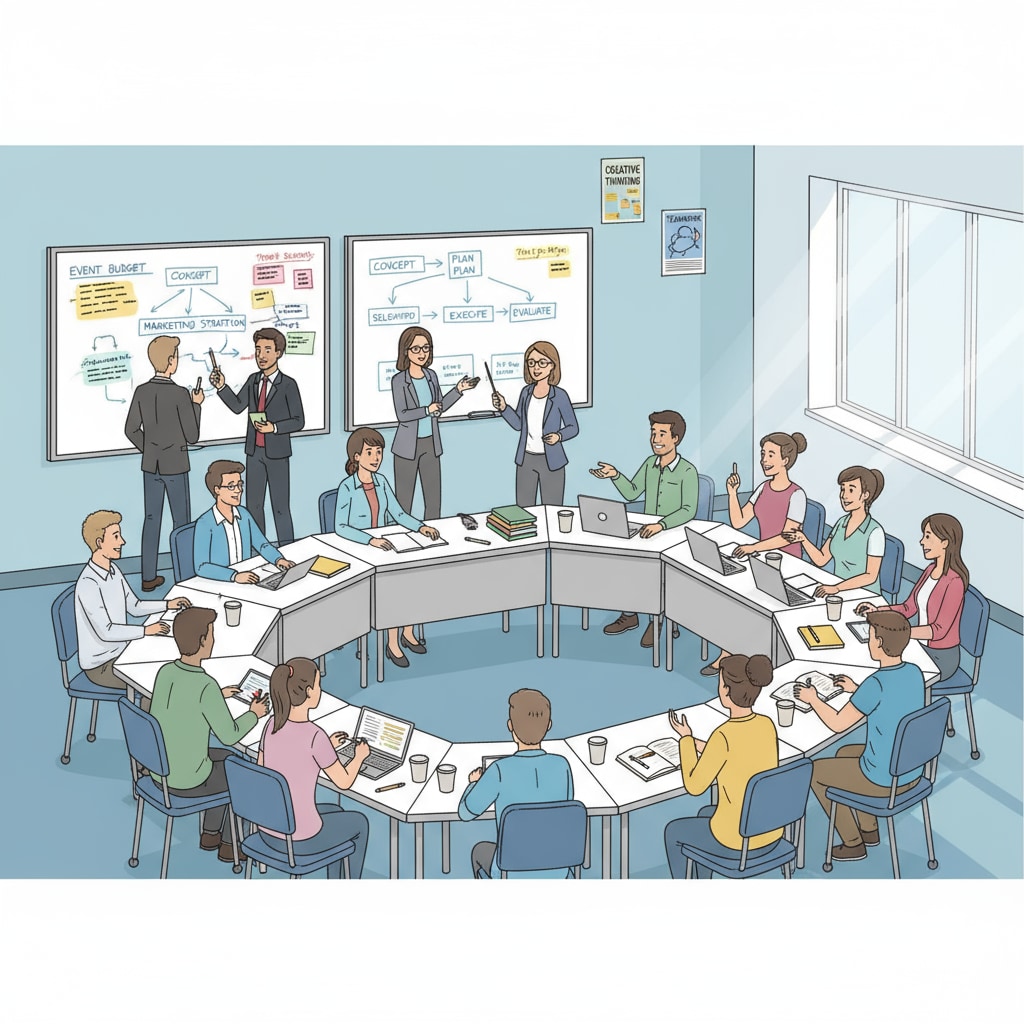The event industry, professional certifications, and communication degrees play crucial roles in shaping the career paths of future event planners, especially when nurtured from the K12 education stage. For students with a passion for event planning and management, K12 education offers a fertile ground to start cultivating the necessary skills and knowledge.

The Foundation Laid in K12 Education
K12 education serves as the cornerstone for students interested in the event industry. During this period, schools can design comprehensive courses that introduce basic concepts of event planning. For example, courses on project management can teach students how to organize tasks, set timelines, and allocate resources, which are essential skills in event planning. In addition, classes in communication and public speaking help students develop the ability to express ideas clearly, a vital aspect when dealing with clients, vendors, and attendees in the event industry.

The Role of Practical Activities
Practical activities in K12 are invaluable for future event planners. School events such as fairs, talent shows, or charity drives provide hands-on experience. Students can be involved in various aspects, from conceptualization to execution. This practical exposure not only enhances their skills but also gives them a taste of the real-world challenges in the event industry. For instance, they might face issues like budget constraints or last-minute changes, which will prepare them for similar situations in their future careers.
Vocational education within K12 also contributes significantly. Programs that focus on event management can offer in-depth knowledge about different types of events, industry trends, and best practices. These courses can be complemented by guest lectures from industry professionals, giving students insights into the actual workings of the event industry.
As students progress towards higher education, obtaining a communication degree can be highly beneficial. A communication degree equips students with strong writing, speaking, and interpersonal skills. In the event industry, effective communication is key to building relationships with clients, marketing events, and ensuring smooth operations during an event.
Professional certifications are another important aspect of career development in the event industry. Certifications such as the Certified Special Events Professional (CSEP) can enhance a planner’s credibility and open up more job opportunities. Even at a young age, students can be made aware of these certifications and start working towards the skills required for them.
Readability guidance: By focusing on these aspects in K12 education, students can be well-prepared for a successful career in the event industry. They will have a solid foundation of skills, knowledge, and the right mindset to pursue relevant degrees and certifications later on, ensuring a smooth transition into the dynamic world of event planning and management.


